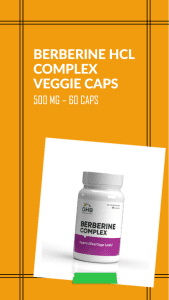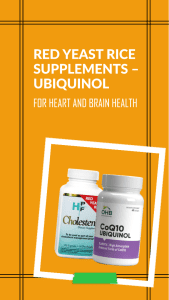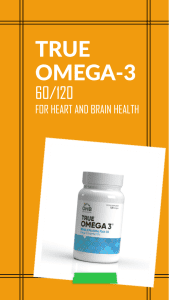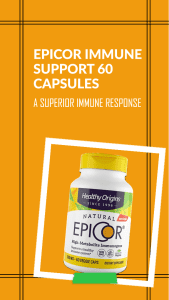
Share
Welcome, friend! If you're reading this, you’ve probably heard people talking about Omega-3s. And guess what? They’re totally worth the hype! Omega-3 fatty acids are like the superheroes of healthy fats. They help your brain, heart, and so much more.
At Optimal Health Bridge, we’re here to help you feel great—especially when it comes to your heart and overall wellness. A big part of that? Making sure you’re getting enough Omega-3s.
Let’s learn about what Omega-3s are, why they matter, and how to get more of them into your day.
What Are Omega-3 Fatty Acids?
Okay, let’s get a little science-y for a second!
Omega-3s are essential fats. That means your body can’t make them on its own. You need to get them from food or supplements.
There are three main kinds of Omega-3s:
- ALA (Alpha-linolenic acid) – Found in seeds and nuts
- EPA (Eicosapentaenoic acid) – Found in fatty fish and fish oil
- DHA (Docosahexaenoic acid) – Also found in fatty fish and great for your brain
Here’s a quick breakdown:
- ALA: Found in flaxseeds, chia seeds, and walnuts. Your body can turn a little of it into EPA and DHA—but not much.
- EPA and DHA: Found in fish like salmon and sardines. These are the real power players for heart and brain health.
So unless you’re eating a lot of fish, there’s a good chance you need more Omega-3s in your diet.
10 Proven Benefits of Omega-3 for Heart and Brain Health
Ready to see what Omega-3s can do? They’ve been studied a lot, and they help with all kinds of things:
- Help lower triglycerides (a type of fat in your blood)
- Lower your blood pressure
- Keep plaque from building up in your arteries
- Help your heart beat steady and strong
- Reduce your risk of heart attacks and strokes
- Improve how well your brain works—focus, thinking, problem-solving
- Support memory, so you don’t forget where you put your keys
- Help with mood—Omega-3s can ease depression and anxiety
- Support focus and attention, especially helpful for kids and adults with ADHD
- May slow down age-related memory loss and lower the risk of Alzheimer’s
Simply put, Omega-3s help you live longer, feel stronger, and stay sharp.
10 Great Food Sources of Omega-3
So, where can you get these healthy fats? Here are some top foods full of Omega-3:
- Fatty fish like salmon, sardines, mackerel, anchovies, and herring
- Flaxseeds and flaxseed oil
- Chia seeds
- Walnuts
- Hemp seeds
- Algal oil (plant-based DHA—great for vegans!)
- Omega-3 enriched eggs
- Edamame
- Brussels sprouts
- Fortified foods like yogurt, milk, and protein powders
You don’t have to eat fish every day to get enough Omega-3s. Mix it up and enjoy different foods!
How Much Omega-3 Do You Need?
Let’s break this down simply:
Daily Recommendations
- ALA: Men need about 1.6 grams per day; women need about 1.1 grams
- EPA and DHA: Most healthy adults should get about 250–500 mg per day
Special Cases
- Men: Often need more for heart protection
- Women: Important for hormones and during pregnancy
- Children: Needed for brain growth and focus
- Pregnant individuals: Aim for at least 300 mg of DHA daily
Signs You Might Need More Omega-3
- Dry skin or weak nails
- Feeling moody or having trouble focusing
- Aching joints
- Brain fog
- Feeling tired even if you didn’t do much
If any of these sound like you, try adding more Omega-3s to your life!
Easy Ways to Add Omega-3s to Your Diet
Here are some tasty and simple meal ideas packed with Omega-3s:
- Salmon and quinoa bowl with spinach and avocado
- Chia pudding with almond milk and fresh berries
- Avocado and walnut salad with lemon and olive oil
- Overnight oats with ground flaxseed and almond butter
- Tofu stir-fry with Brussels sprouts
- Smoothie with spinach, flaxseed, berries, and protein powder
- Sardine sandwich on whole grain bread with mustard
- Omega-3 egg breakfast burrito with spinach
- Edamame and quinoa salad
- Tuna melt wrap with cheese on a whole grain tortilla
Too busy to cook? Supplements are a fast and easy way to get your Omega-3s every day.
Eating vs. Supplementing: What’s Better?
Both can help! Here’s what to know:
- Eating Omega-3-rich foods: Gives you other healthy stuff too, like fiber and vitamins
- Omega-3 supplements: Make it easy to get enough, especially if you don’t like seafood
At Optimal Health Bridge, we offer high-quality Omega-3 supplements made to support your heart and brain. They're simple, safe, and easy to take.
Final Thoughts: Why Omega-3s Matter
In a busy world full of fast food and long to-do lists, it’s more important than ever to take care of your body and your brain. Omega-3s do more than “help”—they’re a big part of lifelong health.
No matter what kind of food you like, there’s a way to add more Omega-3s. And if food isn’t enough, supplements can help you stay on track.
With a little help from us here at Optimal Health Bridge, better health really is just a few bites (or a softgel) away.
Here’s to your heart, your brain, and your best health yet!
Love this info? Want more tips, recipes, and wellness ideas? Sign up for our newsletter at OptimalHealthBridge.com. We’ve got your back (and your brain)!
Stay well and stay oily, friends!










